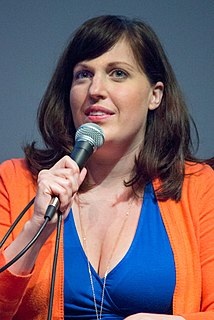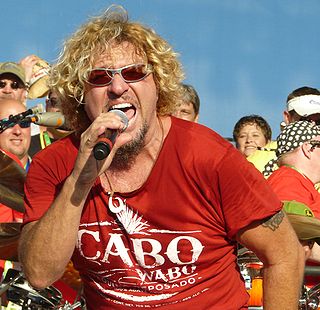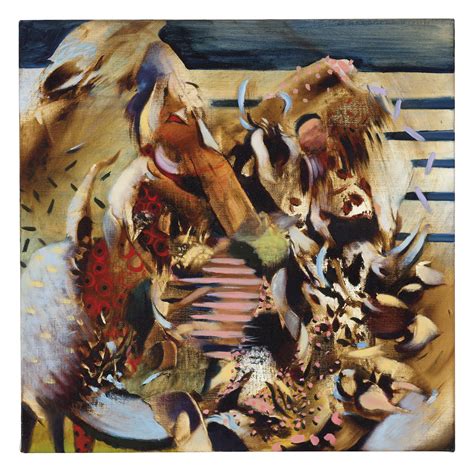A Quote by Hans Zimmer
As opposed to being on the Internet, there's something really nice about reading a book or talking to authors.
Related Quotes
I hate to think of a day where a compelling book or a compelling authorial voice would be lost simply because that person doesn't have a Web site. But I think that, to use the Internet in a positive way, to turn people on to reading, is something that authors shouldn't really shy away from necessarily.
But I'm getting to a point where I'm trying to stop reading reviews about myself, only because it's a no-win situation. If they say something nice, you get a little ego pump. But people on the Internet are straight-up cruel, and I'm becoming increasingly uncomfortable reading the ridiculous cruelties that people spit out on the Internet.
Henry Kissinger once told me he was very concerned about the Internet's impact on people's ability to absorb information in a concentrated way, because we've become accustomed to looking up something, getting a snippet and being satisfied with that - as opposed to reading through and considering a weighty tome that goes into great depth.
I like people, I really do. I like meeting people. But most of the time I would rather be at home reading a book than reading in a bookstore. It's a performance, and it ends up being all right, and then you have a nice shot of bourbon afterwards, and it's all good. I want to please people. I want to be nice. I want to be liked. As a result I say yes to everything. But it takes a lot of vital energy out of me.
I appreciate your giving my book -- and in no small way, me -- a chance. To thank you, I really wanted to acknowledge all of you in the book. Unfortunately, I didn't have enough room for each name. So I've put in a code name that stands for all of you reading this book. The name is 'Mom.' It will be our little secret. So when you see 'Mom' in the acknowledgments, you'll know I'm really talking about you. And don't let my mother try to tell you otherwise.
I still love books. Nothing a computer can do can compare to a book. You can't really put a book on the Internet. Three companies have offered to put books by me on the Net, and I said, 'If you can make something that has a nice jacket, nice paper with that nice smell, then we'll talk.' All the computer can give you is a manuscript. People don't want to read manuscripts. They want to read books. Books smell good. They look good. You can press it to your bosom. You can carry it in your pocket.
When we talk about computer network exploitation, computer network attack, we're not just talking about your home PC. We're talking about your cell phone, and we're also talking about internet routers themselves. The NSA is attacking the critical infrastructure of the internet to try to take ownership of it. They hack the routers that connect nations to the internet itself.
I think I'm still fed by my childhood experience of reading, even though obviously I'm reading many books now and a lot of them are books for children but I feel like childhood reading is this magic window and there's something that you sort of carry for the rest of your life when a book has really changed you as a kid, or affected you, or even made you recognize something about yourself.
Think about the way you go surfing on the Internet - you go from one thing to another. You can't really concentrate. I can't sit and read 10 pages on my computer. You'll read and then all of a sudden part of your brain is like, "What about that? ...You're not reading the whole book. You're reading fragments. Even though I think it's bad, I think it's interesting too, because that's the way my brain works.
For most people, what is so painful about reading is that you read something and you don't have anybody to share it with. In part what the book club opens up is that people can read a book and then have someone else to talk about it with. Then they see that a book can lead to the pleasure of conversation, that the solitary act of reading can actually be a part of the path to communion and community.




































